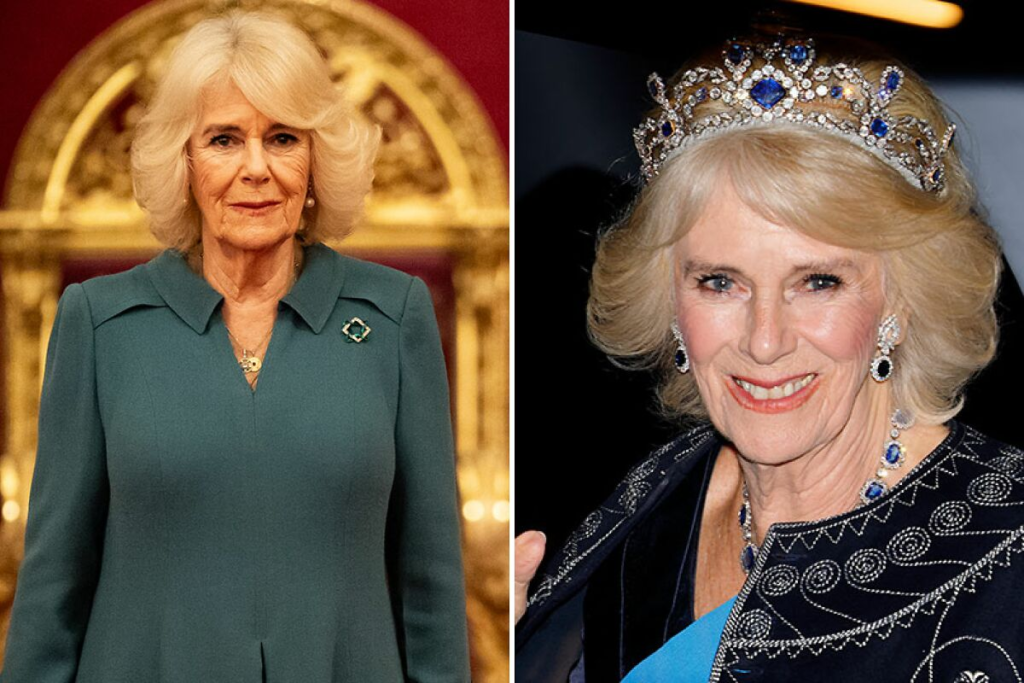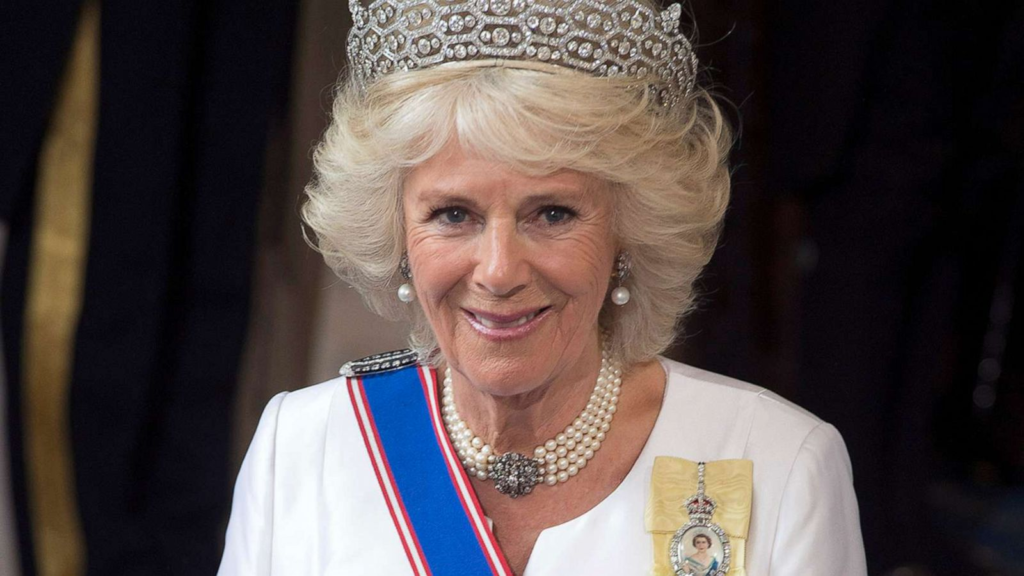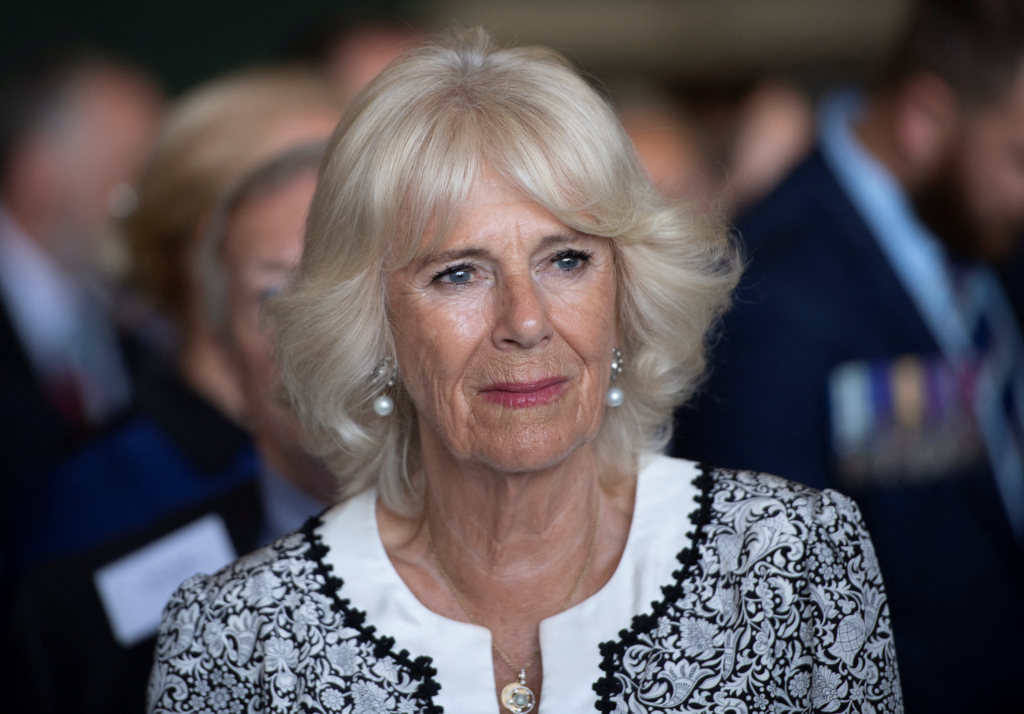Recent news from Buckingham Palace regarding Queen Camilla’s health has sparked a passionate debate and backlash online. The Palace announced that Queen Camilla, wife of King Charles III, had withdrawn from her scheduled engagements for the week due to a chest infection. The decision to step back temporarily from royal duties has led to an outpouring of mixed public reactions. However, the biggest talking point appears not to be Camilla’s health, but rather her title, with many expressing anger over her being addressed as “the Queen.”
This article takes a look at the background of Queen Camilla’s role in the British monarchy, the controversy surrounding her title, the Palace’s recent health update, and the public’s strong reactions, illustrating the complexities surrounding Camilla’s position in the royal family.
Buckingham Palace’s Health Update: Camilla Takes Time to Recover
On November 6, Buckingham Palace released an official statement about Queen Camilla’s health. According to the statement, Camilla had been advised to rest due to a chest infection, causing her to withdraw from a series of scheduled events. The Palace has assured the public that she is recuperating at home and is expected to return to her duties soon.
Camilla’s absence from public engagements comes at a time when she and King Charles have been managing an intensive schedule, with various events planned for the upcoming months. Buckingham Palace has emphasized that her temporary withdrawal is purely precautionary, and Camilla herself has expressed a wish to resume her royal responsibilities as soon as she’s well.
In general, health updates about royals are met with well-wishes from the public; however, this announcement has sparked a different reaction. Many people have voiced strong opposition to Camilla being referred to as “the Queen,” reigniting longstanding debates about her position and title.
A Royal Title with a Controversial History: Queen Camilla

The controversy surrounding Camilla’s title as “Queen” is rooted in her complex relationship with the British public and the royal family’s history. Born Camilla Rosemary Shand, later known as Camilla Parker Bowles, she became a significant figure in King Charles’ life long before they were married. Despite their eventual marriage in 2005, Camilla’s past and her connection to Charles while he was married to Princess Diana have influenced public opinion, with many in the British public finding it difficult to fully embrace her as a royal figure.
When Camilla married Charles, there was a clear understanding that she would not be given the title of “Queen” should Charles become king. At the time of their marriage, it was announced that Camilla would assume the title of “Princess Consort” out of respect for Diana’s memory and to honor the public’s deep connection to the late Princess of Wales. For years, this seemed to be the plan, but as Charles ascended the throne, discussions around Camilla’s title evolved.
Queen Elizabeth II’s Platinum Jubilee message in February 2022 reshaped public expectations. In a heartfelt message, the late Queen expressed her wish that Camilla be recognized as “Queen Consort” upon Charles’ ascension. Her endorsement was seen as a powerful gesture of acceptance, paving the way for Camilla’s new title. When Charles became king, Camilla assumed the title of “Queen Consort,” which was later shortened to simply “Queen Camilla” in May 2023.
The Public’s Response: A Nation Divided
Camilla’s title as Queen has caused a divide among the British public, with passionate supporters on both sides. Supporters of Queen Camilla argue that she has proven herself to be a dedicated royal, tirelessly supporting charitable causes and adapting gracefully to her role in the monarchy. For these supporters, Queen Camilla’s dedication to her duties and her unwavering support for King Charles make her a fitting figure to bear the title.
However, detractors remain vocal, with many expressing their disapproval of the title “Queen” for Camilla. Following Buckingham Palace’s health update, social media platforms were flooded with comments from individuals calling for her to be referred to as “Queen Consort” rather than “Queen.” The phrase “Stop calling her the Queen” trended on Twitter shortly after the announcement, with critics stating that they believe the title should remain reserved for figures like the late Queen Elizabeth or, one day, Princess Catherine.
The outpouring of comments highlighted a general sentiment that many hold toward Camilla, stemming from her past relationship with King Charles during his marriage to Princess Diana. For these individuals, Camilla’s title is a painful reminder of the royal scandal that shook the 1990s and of the deep emotional connection they still feel for Diana, the “People’s Princess.”
One Twitter user commented, “Calling her ‘Queen’ feels wrong. She is Queen Consort, not the Queen.” Others echoed this sentiment, stating that they respect Camilla’s work and commitment but feel that her title should reflect her unique position as the second wife of King Charles. For many, the title “Queen” implies a role that Camilla, in their eyes, hasn’t fully earned or accepted as her own.
Camilla’s Role as Queen: Evolving Responsibilities and Public Perception

Since becoming Queen, Camilla has taken on a multitude of responsibilities that reflect her dedication to the role. She has been involved in numerous charitable initiatives, advocating for causes close to her heart, including domestic violence awareness, literacy programs, and the arts. She is the Patron or President of more than 90 charities, using her platform to address social issues and support communities across the United Kingdom.
Camilla has made an effort to win over the public, often showing a genuine sense of humor and approachability in her interactions. In many ways, she has worked tirelessly to reshape her image and redefine her role within the royal family. King Charles has also made it clear that he values Camilla’s contributions and relies on her support, both personally and as his partner in the monarchy.
Despite her efforts, Camilla’s public image remains complicated. While some appreciate her advocacy and see her as a dedicated member of the royal family, others struggle to see past her past involvement in the royal family’s controversial moments. As a result, her position as Queen continues to provoke strong opinions and mixed feelings among the British public.
Buckingham Palace’s Decision: Title and Tradition
The decision to refer to Camilla as “Queen” rather than “Queen Consort” was ultimately made by Buckingham Palace, which cited the natural progression of titles and tradition within the monarchy. The palace’s position is that Camilla’s role is similar to that of previous queens consort who were referred to simply as “Queen” alongside their reigning husbands.
The Palace has emphasized that this title change aligns with historical precedent, aiming to provide stability and continuity within the monarchy. The move to refer to her as “Queen Camilla” also aligns with the current trend in modern royal titles, where simplicity is often preferred to more elaborate titles. King Charles himself reportedly felt that his wife deserved the honor of being addressed as “Queen,” as a mark of their partnership and her role within the royal family.
The Importance of Titles in the British Monarchy

Titles within the British monarchy carry profound symbolic significance, as they represent the institution’s values, history, and the public’s connection to the royal family. The title “Queen” especially holds immense weight, evoking memories of Queen Elizabeth II’s seven-decade reign and the dignity and service she brought to the role.
For some, the title “Queen” is inseparable from Elizabeth’s legacy and the sense of continuity she represented. As a result, any use of the title today can feel contentious, especially when associated with a figure whose past and present are as complex as Camilla’s.
For others, the title represents the future of the monarchy. They see Queen Camilla as a symbol of a modernized, reformed monarchy, capable of adapting to the realities of the 21st century. In this view, titles like “Queen” are evolving terms that can grow and shift with the times, as the royal family navigates new challenges and expectations.
Moving Forward: A Modern Monarchy with Evolving Traditions
The ongoing debate around Queen Camilla’s title illustrates the challenges that the modern monarchy faces as it attempts to evolve while maintaining traditions. Buckingham Palace’s health update about Camilla, though a simple announcement, has touched on deeper issues regarding public perception, historical precedent, and the emotional connections people have with royal titles.
While the monarchy may not be able to please everyone, the conversation around Camilla’s role highlights the importance of transparency, respect, and tradition in shaping the institution’s future. Queen Camilla’s journey from public scrutiny to a role at the very heart of the monarchy underscores her resilience, and the ways in which she and King Charles navigate this new era will shape the monarchy’s path forward.

